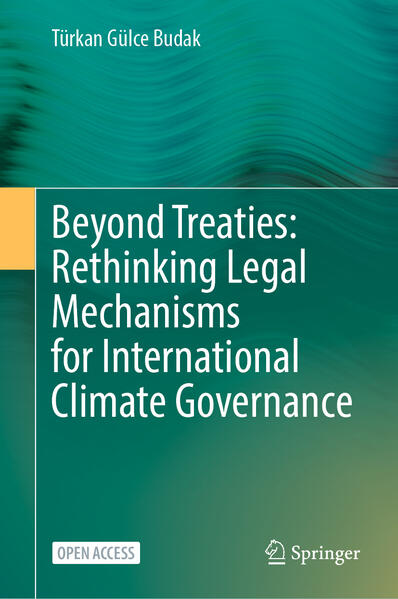
Zustellung: Sa, 21.06. - Mi, 25.06.
Versand in 1-2 Wochen
VersandkostenfreiBestellen & in Filiale abholen:
This open access book examines the implications of the shift towards minilateralism for international climate law, analysing how climate-related trade measures and Paris Agreement compatible platforms may enhance global climate governance.
The landscape of international climate change law is evolving from a traditional consensus-based treaty model, characterized by comprehensive yet often slow-moving agreements, toward a more pragmatic approach known as minilateralism. In this emerging paradigm, smaller groups of countries negotiate and implement trade measures aimed at mitigating climate impacts. An exemplary case is the European Green Deal, which introduces climate-related trade measures as a key instrument for achieving sustainability goals within and beyond Europe. Additionally, countries are exploring minilateral cooperation platforms within the Paris Agreement framework to further their climate objectives.
The central questions to be addressed in this book are twofold. First, how can the design of the minilateral schemes comply with the Paris Agreement s international cooperation, common but differentiated responsibilities and respective capacities, and market-based mechanisms principles? Second, to what extent does the climate-related trade measures conform with the WTO regime, particularly with the non-discrimination principles of the trade law, namely most favoured nation and national treatment?
Inhaltsverzeichnis
1 Introduction. - 2 Existing Landscape of International Climate Law. - 3 Exploring Alternative Governance Structures for Climate Cooperation. - 4 Climate Club. - 5 The Role of Linkages in Strengthening Climate Clubs. - 6 Legality of the Climate Club Scheme. - 7 Navigating Non-Discrimination in Climate Club Policies. - 8 Epilogue.
Produktdetails
Erscheinungsdatum
06. April 2025
Sprache
englisch
Seitenanzahl
380
Autor/Autorin
Türkan Gülce Budak
Verlag/Hersteller
Produktart
gebunden
Abbildungen
XVI, 364 p.
Gewicht
733 g
Größe (L/B/H)
241/160/26 mm
ISBN
9783031860218
Entdecken Sie mehr
Bewertungen
0 Bewertungen
Es wurden noch keine Bewertungen abgegeben. Schreiben Sie die erste Bewertung zu "Beyond Treaties: Rethinking Legal Mechanisms for International Climate Governance" und helfen Sie damit anderen bei der Kaufentscheidung.









